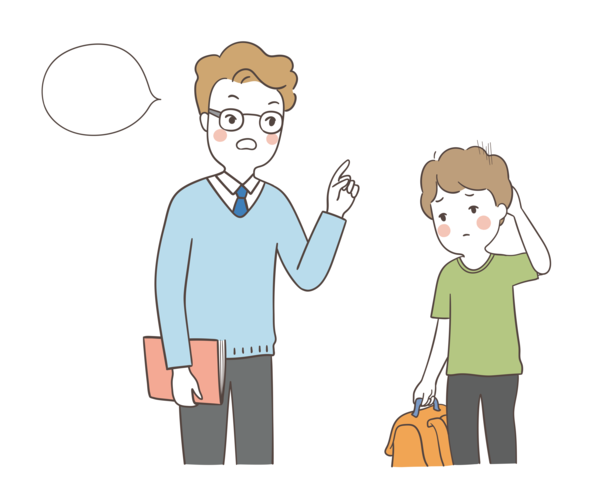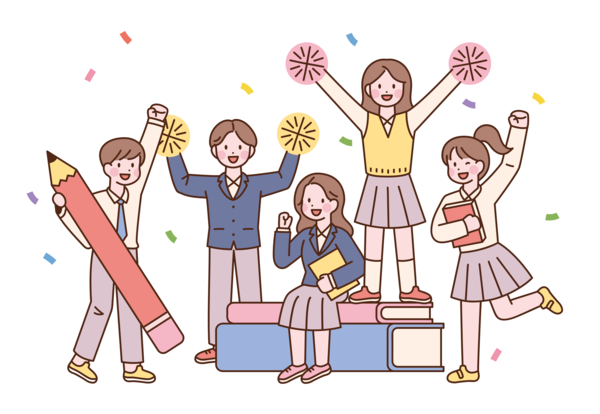Recently, a tragic incident reported within South Korean society shed light on a pervasive issue – the erosion of teacher authority. A 23-year-old teacher at Seo2 Elementary School in Seoul Seocho-gu took her own life. It is suspected that excessive stress and interference from a student's parents, for whom the teacher served as a homeroom teacher, might have contributed to this tragedy. The young teacher’s heartbreaking end not only exposed the issue of declining authority in the field of education, but has also triggered a societal shift, making the problem a matter of public concern. As a result, there is an ongoing discussion and debate about finding solutions and initiating necessary changes regarding this issue. Let's take a look into the current controversy.
A Teacher’s Suicide in Seoul Seo2 Elementary School

On July 18th, a teacher, Ms. A ended her own life in the school's textbook storage room at Seo2 Elementary School. On the following day, the Korean Federation of Teachers Associations (KFTA) issued a statement demanding a thorough investigation into the circumstances surrounding her death. It is suspected that continuous and excessive interference from the parents of a student has been the potential cause of this case. In her diary, Ms. A expressed stress due to work-related pressures, particularly connected to one particular student. According to the investigation conducted by the Seoul Metropolitan Police Agency, a week before her death, there were numerous phone calls between Ms. A and the parents involved in a so-called "pencil incident". In this incident, a student hurt another student's forehead with a pencil, leading to malicious complaints from the parents against Ms. A. Even after a meeting resolving the issue arranged by the school, Ms. A reported to the school that the parents repeatedly contacted her on her personal phone. The school’s response to this was to change her phone number. Ms. A's difficulties in dealing with parents' complaints seems to have been ongoing. She had asked counsel from the school a total of ten times from May of the previous year until July of this year. Eight of those requests were this year, with three of them being made in July alone. To uncover the motives behind Ms. A's death, the Ministry of Education and the police have decided to extend the joint investigation period. However, according to final investigation result, any criminal charges of parents’ violence were not found behind Ms. A’s death. Following the news of the incident at Seo2 Elementary School, many teachers while expressing solidarity and mourning, pointed out the issues of lacking authority of a teacher and inadequate support when dealing with parental complaints. The school received numerous expressions of sympathy from teachers nationwide, as well as from parents who sent condolence flowers. Teachers shared images on social media featuring black ribbons as a sign of mourning. In addition to this, teachers gathered in front of Bosingak Pavilion in Jongno-gu, Seoul, to hold a rally for "the normalization of public education." On August 5th, during the third rally since July 29th, around 40,000 teachers demanded the protection of teachers' rights and improvements in their working conditions in addition to honoring the memory of the Seo2 elementary school teacher.
Discussed Ways to Restore Teacher’s Authority
Granting Immunity over Charges of Child Abuse

Since the issue of the dwindling teachers' rights gained prominence. Voices advocating for solutions to restore educational authority have emerged. One of the proposed solutions is the revision of the Act on Special Cases Concerning the Punishment of Child Abuse Crimes (Act on the Punishment of Child Abuse Crimes). In a survey conducted by the Seoul Teachers' Union in July, targeting 10,716 teachers from elementary, middle, and high schools in Seoul, 61% of respondents indicated that revising Act on the Punishment of Child Abuse Crimes[1] to grant ‘immunity for disciplinary actions considered child abuse’ is the most necessary step to protect teachers' authority. This is due to situations where any disciplinary actions against students who disrupt classes or hinder classroom management are reported as child abuse. According to provisions related to student guidance in the Elementary and Secondary Education Act, teachers should provide proper education and discipline as part of their legitimate educational activities. However, treating ‘disciplinary actions against students who disrupt class’ as child abuse has hindered teachers from conducting proper educational activities in the classroom. The issue of declining educational authority has been a concern since the term "classroom collapse" was first used in the 1990s. In the 2000s, various incidents of violations on teachers' authority became more prominent. Particularly, excessive interference from parents’ intervention in school is criticized for weakening teachers' authority. Among parental interventions, reporting teachers for alleged child abuse is especially detrimental to teachers. The current Public Officials Act states that ‘removal from office’ is "possible" in cases of prohibited acts (child abuse) under Article 17 of the Child Welfare Act. However, most education authorities exclude teachers from classes and educational settings based solely on the fact that a report has been received, even before the truth is investigated. Additionally, schools that should protect teachers from unjust situations sometimes fail to do so, and instead treat teachers as if they were criminals based on parental complaints or reports alone. In September 2022, a special education teacher who had prevented a student from pulling down his pants in the classroom was accused of child abuse by the student's parents. As a result, the special education teacher was removed from their position before the facts were confirmed. Similarly, as in the case of Ms. A's request, the school did not offer help but instead left responsibility to her. The Seoul Teachers' Union stated, "Teachers fear being falsely accused of child abuse. Teachers who are falsely accused of child abuse are at risk of losing their positions. They strongly demand the revision of the Act on the Punishment of Child Abuse Crimes to ensure that legitimate educational activities are not undermined."
Abolishment of Student Rights Ordinance

Another issue being mentioned alongside is the discussion about the ‘abolition of the Student Rights Ordinance.' The Student Rights Ordinance is an ordinance enacted and enforced by each local education office nationwide to ensure the rights of students. While there may be slight variations in content among different education offices, each generally include provisions related to "the right to not be discriminated against, freedom of expression, rights related to educational welfare, freedom of conscience and religion," and more. The Student Rights Ordinance is a local autonomous regulation, which means that disciplinary actions against schools violating it is possible. One aspect of the Student Rights Ordinance is the stance on corporal punishment. The ordinance prohibits the use of methods that cause physical pain to students' bodies using tools, physical force, etc. This includes a prohibition against direct corporal punishment of students. In addition to the corporal punishment clause, it also specifies the right of students to not be subjected to any form of discrimination for any reason, and the right to not be forced into activities like evening self-study sessions. The ordinance aims to prevent physical and psychological harm to students due to past practices such as physical punishment or verbal abuse by teachers. It also grants autonomy in students' behavior and aligns with the purpose of guaranteeing universal rights that individuals are entitled to within educational institutions. After the incident of the Seo2 elementary school teacher's suicide, Education Minister Lee Ju-ho, mentioned during a meeting with teachers that "since the enactment of the Student Rights Ordinance the emphasis on students' rights has grown excessively, and with it showed rapid declining in teachers' authority and the collapse of public education." He attributed the decline in educational authority to the Student Rights Ordinance, stating that even in cases such as waking up a sleeping student during class or resolving small conflicts among students, teachers found it challenging to correctly guide them. Additionally, provincial members of the ruling party mentioned that "the cause of the decline in teachers' authority lies in the Student Rights Ordinance," explaining that student rights enhancement and teacher authority assurance are opposing concepts. According to their perspective, as the rights of students and parents are enhanced, teachers are burdened with increased responsibility and obligations, without being granted corresponding legal authority to guide students.
Compatibility between Student Rights and Teacher’s Authority

However, there are also concerns regarding the proposal to grant teachers immunity over charges of child abuse. This is due to the possibility that teachers might not face punishment for abusive behavior towards students. Seoul Education Hope Network, comprised of parents, have formed the 'Parents and Citizens Coalition Against Teachers' Child Abuse Immunity,' and are asserting that while they understand the teachers' challenges, allowing exceptions for child abuse by teachers is not acceptable. Hye-yeon Lee, an advisor to the Parents' Association for Disabled Children, opposes granting teachers immunity for child abuse, citing the difficulty of identifying and reporting child abuse, particularly in cases involving disabled children. Furthermore, there's a perspective that argues against attributing the decline in teachers' authority solely to Student Rights Ordinance. Song Doo-hwan, the Chairperson of the National Human Rights Commission, emphasized that teachers' authority and students' rights are not inherently contradictory. He stated that issues such as students’ violence towards teachers, disruptions in class, or harassment by parents, are different from students' rights. He also stressed that the key lies in designing and operating a school culture and educational environment that harmoniously protects and enhances both teachers' authority and students' rights. Additionally, it was emphasized that the Student Rights Ordinance has contributed to creating a rights-friendly environment within schools by guaranteeing students' rights that were not adequately protected within the school setting and by eliminating punitive practices. Regardless of the content of the Student Rights Ordinance, it is an opinion that students' rights and teachers' authority are not inherently conflicting, as teachers can discipline students in appropriate ways without resorting to corporal punishment.
How Other Countries Are Handling the Problem
The diminishing of teachers’ authority extends beyond the border of South Korea. According to the KEDI Education Policy Network’s "Overseas Education Trends Report for 2022," countries like Canada, the United States, Japan, France, and Germany, among other major advanced nations, are also undergoing problems with decline of teacher authority. Even Germany, which holds strong teacher authority, reported an increase in violence against educators across all domains based on a 2020 survey by the Education and Care Association. Specifically, cases of direct humiliation, threats, bullying, and sexual harassment experienced by teachers rose from 48% in 2018 to 61% in 2020. Instances of online violence against teachers escalated from 20% to 32%. Amidst these circumstances, other nations have devised measures to ensure teacher authority. In the United Kingdom, the Education and Inspection Act (2006) ensures the power of discipline for headteachers and teachers, safeguarding teacher authority. Unlike Korea, the UK provides guidelines for "reasonable punishment recommendations," allowing for disciplinary actions and sanctions based on specific situations. On the other hand, the United States holds offending students legally accountable for severe breaches of teacher authority. The Teacher Protection Act of 2001 minimizes legal liability for teachers and grants them immunity privileges for student guidance. This approach, unlike in Korea, prevents valid instructional actions by teachers from being unfairly labeled as child abuse. Notably, Seoul Teachers Union's call for legal mechanisms such as immunity rights is already being implemented in these examples. Consequently, the teacher protection policies of numerous advanced nations provide valuable insights for necessary transformations within the South Korean education landscape.
The issue of declining teacher authority appears to be a problem that requires solutions through various discussions over an extended period. While approaches such as granting child protection rights or abolishing Student Rights Ordinance have been proposed, the most fundamental solution lies in fostering a harmonious educational environment through effective communication among students, parents, schools, and educators. Particularly, recognizing that student rights and teacher authority are not opposing concepts, and exploring possibilities for legal frameworks and new systems is crucial. This entails transforming the educational landscape through the collaboration of the education sector, students, and parents.
[1] Act on the Punishment of Child Abuse Crimes is a legal framework established to regulate the punishment of child abuse crimes. It also defines the process of victims’ protection. Child Abuse Prevention Act is applicable only to individuals under the age of 18, which Child Welfare Act define as a child.

